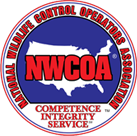FAQs
Frequently Asked Questions
If you can't find an answer to your question below,
please Contact Us.
please Contact Us.
When is the best time to deal with an animal
issue?
Now is typically the best time to
start the process of removing animals and limiting damage to your
house and in your home. There are very few exceptions to the rule.
The longer they remain the more damage and the 'deeper' they get into
your home.
Why do I have an animal issue, what did I do
to cause this?
Probably nothing. Animals are opportunists and
will take advantage of a weakness on your home in order to enter.
These entry issues can be at ground level to on top of the roof and
all areas in between. Remember your house is just a "big hollow
thing" on the landscape to an animal. If you are actively feeding any
kind of animals at your home, you are not helping the situation.
Enticing things close to home only provides more incentive to
investigate and live there. Shelter is all that is required, and the
food makes it even more desirable.
What can I do to solve this?
Sometimes animals need removed - just
excluding them out is not enough. This is "their" home, and many can
get back in using the equipment God endowed them with- claws, teeth,
ability to climb, and strength. When thinking of a gray squirrel just
remember "fuzzy tailed chainsaw" - you get the picture.
What if there are young animals within my
home?
The best time is before this happens, but you
don't always know until it happens. Additional effort may be required
to remove them but not always, it often depends on the animal
species.
What kinds of damage could be occurring?
Within the structure damaged/soiled insulation
from urine and fecal matter, relocation of insulation causing
immediate heating and cooling issues, chewed wiring creating
electrical faults and fire hazards, damaged drywall from stains and
chewing, damage to your living space from animals entering that
space. In addition to the physical damage the noises at night make
for bad sleep.
Is the work expensive?
Sometimes the work is substantial, and costs
rise with it. Clean up of attic and basement voids often can cost
more than the actual repairs to the structure. Another reason not to
wait on correcting an issue.
Can they be prevented from entering?
Yes, some structures require more work than
others. Two things are equally important- removing the animals that
call your house or building home and repairing the structure in a way
that fixes immediate entry issues while addressing areas of interest
or areas that could easily allow animals back in.
Do repellants work?
If a repellant does at all it is only
temporary - will not provide long term relief. We do not see
repellants providing any effective deterrent. The cheap "magic in a
can" is often going to cost you more long term.
Are poisons used?
Not in residential situations. Where are they
going to die? Possibly within the skin of your home and then you have
another problem of permeating odor and perhaps even more expensive to
solve.
If I stopped hearing noise they must be gone?
Wrong, animals have plenty of quiet time and
once settled in you may not hear them because of the location chosen.
The noise may have just be caused by the 'moving company' that helped
move them in.
The noise is loud, is it a big animal?
Not necessarily. Little guys against the
drywall will sound much louder than you would expect.
Can mice be excluded from a home?
Yes, but costs can vary widely based on the
age of the home and the building and foundation materials used to
construct it.
FAQ's About Bats
Why did the bats pick my house?
Because it provides the necessary mix elements for their survival. These elements include shelter, temperature, humidity, air flow and access.
Don't bats bite? Am I and my family at risk of being bit?
Bats do not attack humans but like any animal that responds to possible harm, biting is a defense mechanism. Never pick up a bat, cover it with a bucket and call a professional.
Do bats carry rabies?
Bats can be rabies vectors (carriers). Though few have the disease, the possibility of a bat having rabies exists. If you have concerns about a contact you have had with a bat call your County Health Department.
Bats are endangered so I can't do anything about my infestation?
All bat species enjoy protection. Proper removal from homes is permitted during certain times of the year.
How are bats helpful?
Bats are a part of the neighborhood ecosystem, devouring large quantities of insects. Yes they are good to have around but not in your house.
Should I leave the bats alone and allow them to continue to dwell in my house?
That is a question only a homeowner can answer. Allowing bats to continue to dwell in a structure may result in damage to the interior structure due to guano and urine deposits. Selling a home with bats can be difficult.
Do bats hibernate and could they be hibernating in my house?
Bats actually hibernaculate, a state that is similar to hibernation, but not as heavy. Hibernaculating bats over wintering in a house can be awaken by sudden temperature changes. This is often the reason bats appear in a home during the winter.


Integrated Wildlife Management is our comprehensive and effective one-stop solution. This approach brings together the six necessary elements to successfully resolve wildlife / human conflicts and when possible, safely relocate wildlife to a more suitable habitat.


